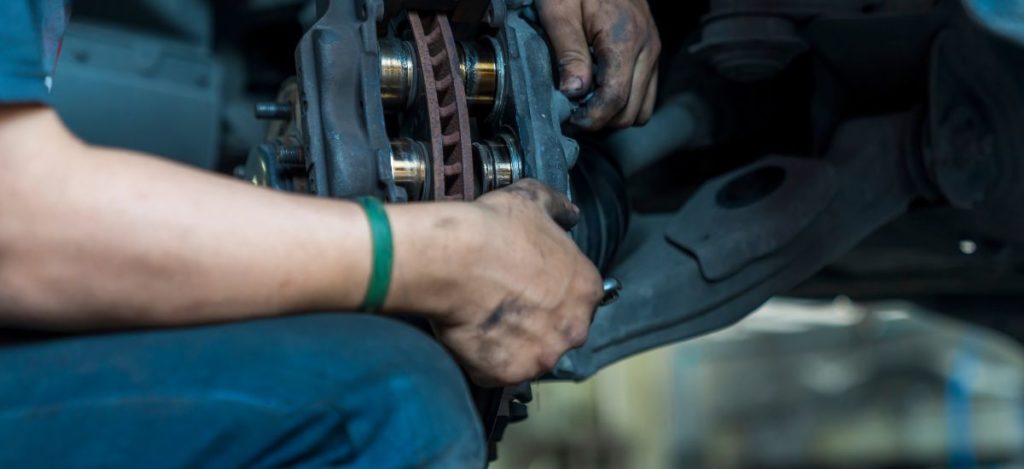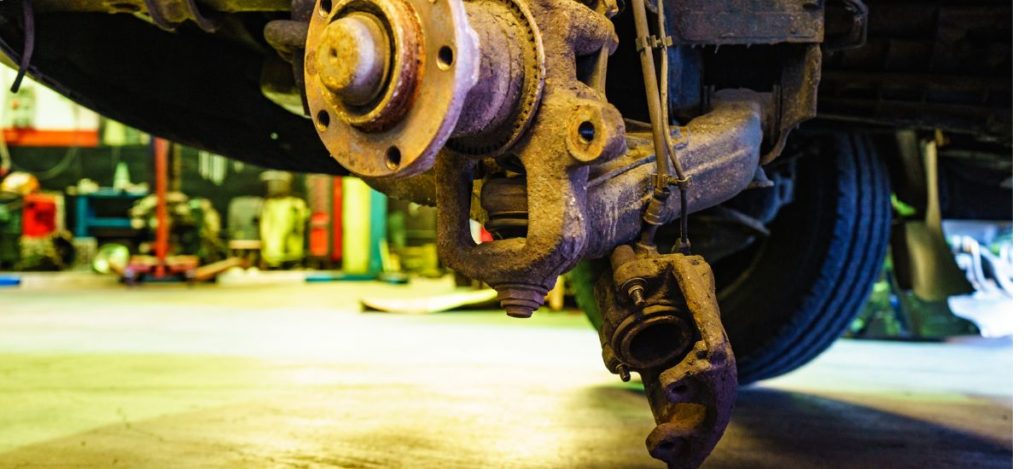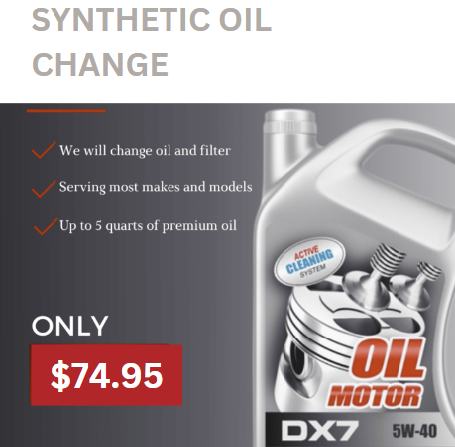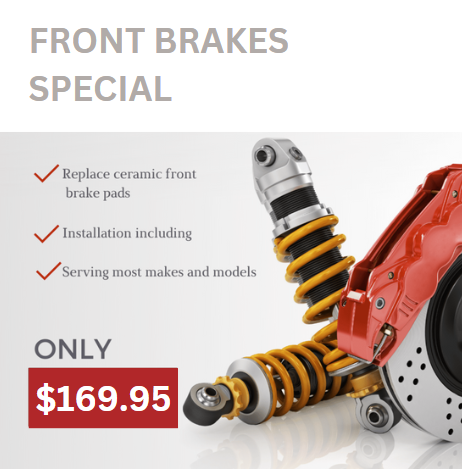5 Signs You Need a Brake Service: Guide by Dr Brakes
Your car’s brakes are a critical safety feature that keeps you and your passengers safe. As a responsible driver, it is vital to recognize the warning signs that indicate your brakes need servicing. This blog will walk you through five common warning signs indicating your car needs brake service. We will also discuss the importance of regular brake service and how often you should get them checked.
We’ve got you covered, from identifying unusual sounds and vibrations to leaking fluid and soft or spongy brake pedals. So, buckle up as we guide you through everything you need to know about maintaining your car’s brakes for a smooth and safe ride.
Squeaky or Squealing Sounds
One of the most common warning signs that your brakes need attention is a high-pitched squeaking or squealing noise when you apply the brakes. A small metal shim that typically causes these noises, called an indicator, is built into modern brake pads. When your brake pads wear down to a certain level, this indicator contacts the rotor, producing that unmistakable sound.
Why It Happens:
Brake pads wear out over time due to friction with the brake rotors. As they wear down, the indicator begins to make contact, causing the noise.
What to Do:
Don’t ignore the squealing! Get your brakes inspected by a professional technician as soon as possible. Ignoring this warning sign can lead to more extensive and costly brake repairs.
Grinding Noises
You’re in a danger zone if your brakes go from squealing to a grinding or growling sound. Grinding noises indicate that the brake pads have worn down completely, and the metal backing of the pads is now in direct contact with the brake rotor. This affects your braking performance and can damage the rotor, resulting in a much more expensive repair.
Why It Happens:
When brake pads wear out entirely, there is no friction material left, and the pad’s metal backing contacts the rotor, causing a grinding noise.
What to Do:
Immediately stop driving your vehicle and have it towed to a professional mechanic. Continuing to drive with grinding brakes can lead to severe damage and compromised safety.
Soft or Spongy Brake Pedal
A healthy brake pedal should feel firm and responsive when you apply pressure. If you notice that your brake pedal feels soft or spongy, it clearly indicates a problem with your brake system’s hydraulic components.

Why It Happens:
Soft or spongy brake pedals are often caused by air in the brake lines or a brake fluid leak, which can compromise your ability to stop effectively.
What to Do:
Avoid driving your vehicle if the brake pedal feels soft or spongy. Inspect your brakes immediately, as this issue can lead to failure if left untreated.
Vibrations or Pulsations
When you press the brake pedal, your vehicle should come to a smooth stop. If you experience vibrations or pulsations through the brake pedal or steering wheel, it’s a sign of brake rotor issues. This phenomenon is commonly known as brake pulsation.
Why It Happens:
Brake pulsation occurs when the brake rotor becomes unevenly worn or develops hot spots due to excessive heat. This can happen over time as a result of normal driving conditions.
What to Do:
Schedule a brake inspection to determine the extent of the rotor damage. Depending on the severity, you may need to have your brake rotors resurfaced or replaced to restore smooth braking.
Dashboard Warning Light
Modern vehicles are equipped with sophisticated onboard diagnostics systems that detect issues with various components, including the brakes. If your dashboard warning light, often depicted as an exclamation point inside a circle or the word “BRAKE,” illuminates, it’s time to take notice.
Why It Happens:
The brake warning light can be triggered by various factors, including low brake fluid, a malfunctioning ABS (Anti-Lock Braking System), or a problem with the brake system sensors.
What to Do:
Pay attention to dashboard warning lights. Have a professional technician scan your vehicle’s brake system to identify the specific issue and take appropriate action.
Other Warning Signs to Watch Out For
While we’ve covered the top five warning signs that you need a brake service, it’s essential to stay vigilant for other common symptoms that might signal brake problems. These include:
- Low Brake Pedal: If your brake pedal feels soft and goes too close to the floor when you press it, it’s a sign of potential brake fluid or hydraulic pressure issues.
- Brake Pad Thickness: You can visually inspect your brake pads through the wheel spokes. If they appear too thin (less than 1/4 inch), it’s time for a replacement.
- Excessive Brake Dust: A buildup of brake dust on your wheels can signal brake pad wear. While not an immediate danger, it should prompt you to schedule a brake inspection.
The Importance of Regular Maintenance
Preventive maintenance is vital to keeping your brakes in optimal condition and ensuring your safety on the road. It’s a small investment that can save you money and potentially save lives.

Here are some essential aspects of brake maintenance:
- Brake Fluid Check: Regularly check your brake fluid level and quality. Brake fluid absorbs moisture over time, which can lead to reduced brake performance. If your brake fluid is discolored or below the recommended level, it’s time for a flush and replacement.
- Pad and Rotor Inspection: Inspect your brake pads and rotors during routine maintenance services. This will help you keep track of their condition and replace them when necessary.
- Brake Line Inspection: Ensure your brake lines and hoses are in good condition. Any signs of leaks or damage should be addressed immediately.
The Dr. Brakes Approach to Brake Service
At Dr Brakes, we understand the critical role your brakes play in your safety and the safety of those around you. Our experienced technicians are well-versed in diagnosing and addressing all brake issues, from squeaking pads to worn-out rotors.
We offer comprehensive brake repair and maintenance services, including:
- Brake Pad Replacement: We use top-quality brake pads to ensure optimal performance and safety.
- Brake Rotor Resurfacing and Replacement: Whether your rotors need a simple resurfacing or a complete replacement, we’ve got you covered.
- Caliper Inspection and Service: Our technicians will inspect and service brake calipers to ensure even pressure distribution.
- Master Cylinder Checks: We’ll examine the master cylinder to detect any brake fluid pressure issues.
Conclusion
Your brakes are the unsung heroes of your vehicle, and they deserve your attention and care. By paying heed to the warning signs and taking proactive measures, you can ensure your brakes perform flawlessly when needed.
Remember, safety on the road starts with a properly maintained braking system. So, the next time you hear a squeak, feel a vibration, or see a warning light on your dashboard, don’t hesitate. Schedule a brake service with Dr. Brakes and enjoy peace of mind knowing your brakes are in expert hands.


